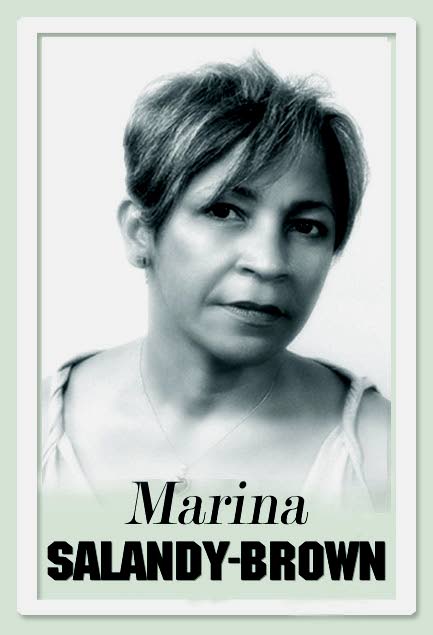WASA: a voting matter

Everyone must have noticed that just a few downpours last week turned the grass green, limp leaves on shrubs suddenly perked up and everything looks fresh and alive again.
Water is as important as the air we breathe to keep us alive, yet we have managed to downgrade its value to the point where we waste it with impunity. Other citizens use 44 gallons a day; we use 90.
I have never wasted water, not because I am good but because I was taught not to at a tender age. I believe it was called the Water Board or the Water Authority when I was a child and their trucks that travelled up and down the Diego Martin Main Road had a motto painted on the sides, Waste Not, Want Not. It was the first idea I consciously entertained. The lesson embedded deep within me.
Then at school Coleridge’s poem The Rime of The Ancient Mariner about a crew of mariners becalmed at sea with no drinking water intensified the lesson with the unforgettable line, “And every tongue, through utter drought, Was withered at the root.”
“Water, water everywhere, And all the boards did shrink; Water, water, everywhere, Nor any drop to drink,” are perhaps amongst the most known lines of poetry in my generation.
Flying over the Nile and seeing the long line of shimmering blue water cutting like a knife through the golden desert, giving life to the miles of green along its banks that end where the irrigation channels end and evidence of human existence peters out was the best of my lessons. The miracle that is potable water can only be taught and observed.
The Savannah today is no longer red, the bush fires are quenched, the deserts everywhere after five minutes of solid rain erupt with patches of greenery, like magic.
Did Robert Le Hunte resign as Minister of Public Utilities because he disagreed with the PM about water privatisation? I would like to believe he did because I am encouraged that any minister would make such an important and worthwhile stand. What we do about WASA and the yet undiscovered horrors we will face with regard to generalised water shortage should be high up on the list of issues that most concern us in the upcoming general elections and those of the future. We do not vote on policy but if we did, a firm policy to finally alleviate our water woes could carry the day with a lot of voters.
It would take $10 billion to fix the 7,200 miles of ancient underground pipes that spring 150 leaks daily, Le Hunte said a year ago. The breaks are repaired now (often poorly) and break nearby or in the same spot next week, destroying the roads yet again and cutting off supply. From January-April 2019 alone, WASA repaired 10,764 leaks, but it cannot afford to replace those pipes, nor can it pay the $1 billion needed to have all the connections properly in place, the $500 million to improve the water storage capacity and the $1.2 billion to instal domestic and industrial water meters.
Last year, WASA got a subvention of $1.5 billion, but its expenditure was $2.5 billion. WASA needs $13 billion to get us to where we need to be. That is a very deep hole indeed and continuing a policy of patching is throwing good money after a lot of wasted water.
The philosophical argument over whether water is a resource or a commodity continues, and as its supply becomes increasingly threatened globally, the need to conserve it and maximise its use trebles. Investors view water as “blue gold, as precious as the metal, and with equally high returns.
In some countries, where water privatisation has happened, there is much discontent with the vast profits private companies make from a natural resource many consider a right for all. Yet, the benefits of privatisation are clear when a state-owned company, such as WASA, becomes a drag on the public purse and a gross underperformer in dire need of reform. Something radical has to be done to stem the flow, regardless of the cost.
Whither WASA should be an election issue. because the stories of mismanagement and professional malpractice within WASA at every level are legend. Continuous failure of successive governments to hold our state-owned companies to account causes public mistrust.
Yet for any PM it’s a hard call when the State lacks the money and there is the distinct chance that not everyone will be well served by privatisation, especially the poor 25 per cent of TT citizens. The PM also has to worry about the reality of the profit motive undermining the democratic control and governance of public utilities such as water. Feeding the poor and making big money don't usually happen together and private-public water investments have gone wrong in other countries.
My vote is for finding the money and making fixing WASA a priority. It is a necessary investment in our future.


Comments
"WASA: a voting matter"